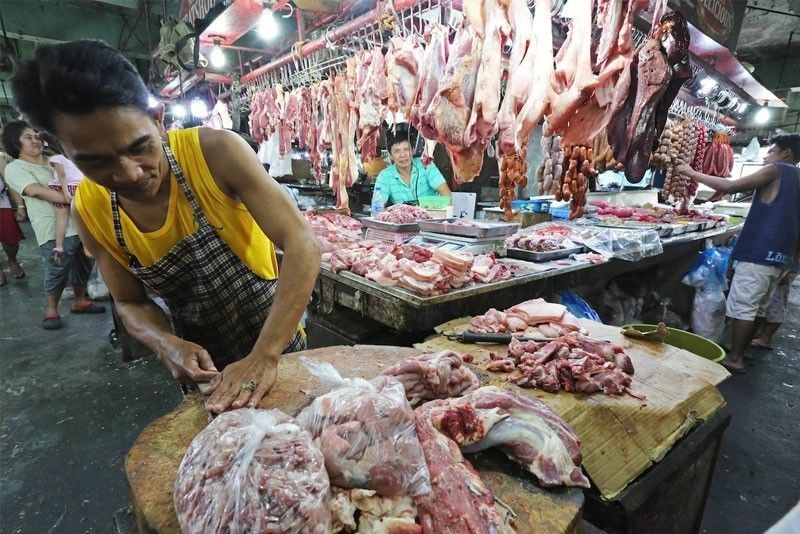More pork, chicken imports set

MANILA, Philippines — The Philippines will continue to rely on imported agricultural products to meet the increasing demand as the country is expected to buy more pork and chicken meat from outside, according to the US Department of Agriculture (USDA).
In the latest report of the USDA Foreign Agricultural Service (FAS), the Philippines is seen importing 300,000 metric tons of pork in 2019, which is 11 percent higher than this year’s expected 270,000 MT.
Domestic consumption will inch up three percent to 1.93 million MT from 1.87 million MT this year, it said.
Local pork production for 2019 will increase by only 1.8 percent to 1.63 million MT.
The Philippines will also hike its chicken meat imports next year by 10 percent to 340,000 MT from this year’s 310,000 MT.
“Shipments by major traders are fueled largely by rising consumption in developing markets, such as the Philippines, Angola, Cuba and Ghana,” the USDA said.
“Robust Asian demand, particularly from Hong Kong, Japan and the Philippines will benefit numerous shippers. Consumption in developing markets continues to be resilient, also fueling trade,” it added.
President Duterte recently issued Administrative Order 13 seeking to streamline procedures for accrediting importers of various agriculture products as prices of basic goods and commodities continue to soar.
AO 13 stated there is an urgent need to tame the price spikes of basic agricultural commodities by adopting measures that remove non-tariff barriers and streamline administrative procedures to allow importation.
In issuing AO 13, the administration said it seeks to address the shortfall in supply and ensure stable prices of agricultural products in the domestic market.
On the other hand, the USDA said global production will increase one percent to 114.6 million MT and worldwide consumption will likely rise by almost the same level.
The agency added that global pork exports next year could reach 8.79 million MT from the 8.54 million MT to be traded this year.
“The European Union will remain the top exporter, buoyed by higher demand in Asia, especially China. Brazil’s exports will rebound as growth to China and Hong Kong offset the loss of previous top market Russia. Import demand will also strengthen in Latin America, as favorable prices and changing preferences boost per-capita pork consumption,” USDA said.
As for chicken meat, global production will increase two percent to 97.8 million MT and worldwide consumption will also rise in the same pace.
USDA said global chicken exports next year could reach 11.62 million MT from the 11.15 million MT to be traded this year.
Meanwhile, a ranking administration lawmaker lauded the decision of the Philippine Department of Agriculture (DA) to increase the buying price of clean and dry palay by as much as P3 per kilo.
“It is a welcome relief for farmers who are worried about the effects of the government’s decision to lift the quantitative restriction for the importation of rice,” Davao City Rep. Karlo Nograles said.
Nograles, chairman of the appropriations committee of the House of Representatives, hailed President Duterte for placing the National Food Authority (NFA) under the DA.
Agriculture Secretary Emmanuel Piñol’s first directive was to increase the NFA’s buying price of clean and dry palay from local farmers, he said.
At the same time, Nograles urged the NFA now to “exclusively buy locally produced rice for its buffer stocks in order to prevent the economic dislocation of tens of thousands of Filipino rice farmers.”
Nograles noticed the last time the NFA had increased its buying price of palay from local farmers was in 2008, or 10 years ago. Since then, the NFA has given preference to rice importation to fill up its buffer stocks.
“Now at least, the NFA’s mandate is finally in sync with the mandate of the DA which is to provide support for our farmers to increase agricultural productivity,” Nograles said.
He added the nationwide adjustment of the buying price of palay would cover 37 provinces. Last week, Piñol signed the Memorandum Circular implementing the Buffer Stock Incentive, which increases the NFA’s buying of clean and dry palay to P20.70 per kilo from its previous rate of P17.70 per kilo. – With Delon Porcalla
- Latest
- Trending





























